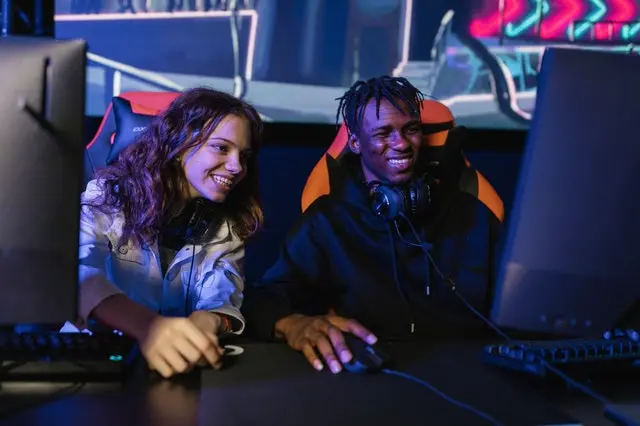The media tends to focus on the negative aspects of playing computer games. Scientific research of the past does too but some new studies confirm that playing computer games has benefits. This sector has grown significantly with billions of players worldwide.
Game-based learning has also become a beneficial way of transferring learning to students. It breathes life into learning, boosts motivation and students can practice skills in a safe environment. Here are some of the benefits students can enjoy when playing video games.
Build strategic thinking skills
Players are in command when playing computer games. Mission-based, multi-level games are rather like complex puzzles. The solution may vary based on the player’s actions. They have to think on their feet and quickly calculate what to do. The various rules and restrictions force them into thinking strategically about alternative moves or routes.
These strategic thinking skills can translate into real life and help players to solve real problems too. For example, students may have the problem of not having enough time. They can use =strategies to manage their time and write essays. Problem-solving skills can translate into better grades.

Speed up response times
Computer games pose problems that need solving within a certain amount of time. As players constantly receive new information, they have to adapt quickly. This can help students to speed up their response times. Students do well when they can solve problems quickly. In much the same way as when they play computer games, they have to complete certain assignments within a specific deadline. Students often struggle to fit in writing essays, attending classes and studying for exams. StudyClerk is a scholarship essay writing service they can use if they’re asking “How will I find the time to write my essay?” By studying essay examples written by professional writers at an essay writing service, they will quickly pick up the skills they need.

Stimulate focus, creativity and visual memory
Computer games have goals that require concentration. Players have to keep in mind the details to achieve them. Gaming can capture a player’s attention for a long period of time. Students can achieve more if they know how to focus to achieve their goals. Gaming is a way they can improve their attentiveness disguised as fun. When playing, players treat missteps as learning opportunities. If they apply this in real life, they will have the persistence they need to overcome obstacles to achieve their goals.
It can also stimulate creativity. Imaginative play is considered important for small kids but not for adults. Gaming offers the opportunity to continue with imaginative play. Players can play games where they explore unique worlds and can create anything they have the power to imagine. Gamers tend to show high levels of curiosity and creativity.
Improve social skills
There is the perception that game playing is a solitary activity that discourages social interaction. However, the technology and gadgets available today offer a whole new way of interacting. Playing with friends can help to strengthen friendships. Players can also play online computer games with people from all over the world and make new friends. Games include the use of microphones so players can interact with gaming peers.
Some studies have shown that players of video gaming are more likely to have good social skills and relationships. This is due to the social and collaborative component to many games. Students with a wider network of students from different countries are smarter and well-informed.
Increase motivation
Good game designers know just how to pull people of all ages into virtual environments. They can get them to work towards meaningful goals. Players learn how to persevere when they fail. They learn how to complete challenging tasks and celebrate their moments of triumph. This kind of motivation can be a key contributor to success and achievement in real life.
Games provide players with compelling, immersive experiences. They reward persistence and make players keep reaching for higher goals. A player begin a game without any knowledge of how to solve the puzzles but quickly get absorbed in moving through levels as the story guides them. In education field, motivation is a real game-changer for every student.
Conclusion
The benefits of playing computer games are usually underestimated. The skills players learn can translate into real life and offer many advantages. They can concentrate more, solve problems and remember better. Some studies even show that gamers may have greater social skills than others. Students may sometimes believe they don’t have what it takes to succeed in their studies. Gaming offers the promise that with hard work and practice, it is possible.
Author’s Bio
Jeremy Bumgardner works as a writing coach for college students and delivers classes online. He’s brilliant as a coach and even more as a freelance academic writer with exceptional hold on essays and thesis. His free time is spent watching live sports, playing football and reading poetry.